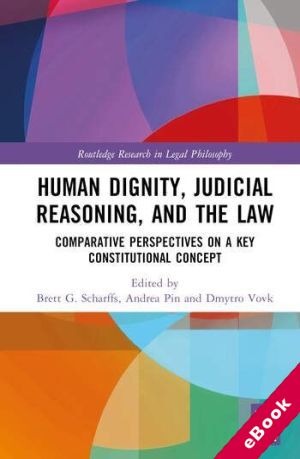
The device(s) you use to access the eBook content must be authorized with an Adobe ID before you download the product otherwise it will fail to register correctly.
For further information see https://www.wildy.com/ebook-formats
Once the order is confirmed an automated e-mail will be sent to you to allow you to download the eBook.
All eBooks are supplied firm sale and cannot be returned. If you believe there is a fault with your eBook then contact us on ebooks@wildy.com and we will help in resolving the issue. This does not affect your statutory rights.
This volume explores how national and international human rights courts interpret and apply human dignity. The book tracks the increasing deployment of the concept of human dignity within national and international courts in recent decades. It identifies how human-dignity-based arguments have expanded to cover larger sets of cases: from the right to life or to integrity or anti-discrimination, the concept has surfaced in disputes about political and social rights and rule of law requirements, such as equality or legal certainty. The core message of the book is that judges understand, interpret, and apply human dignity differently. An inflation in the judicial recourse to human dignity can saturate the legal environment, depriving the concepts as well as human-rights-based narratives of salience, and threaten the predictability of court decisions. The book will appeal to philosophers of law, constitutional theorists and lawyers, legal comparativists, and internal law specialists. Whilst being dedicated specifically to human dignity jurisprudence, the book touches on many aspects of judiciary and as such will also be of interest to researchers studying legal reasoning, interpretation and application of the law and courts, as well as social philosophers, political scientists, and sociologists of law, politics, and religion.